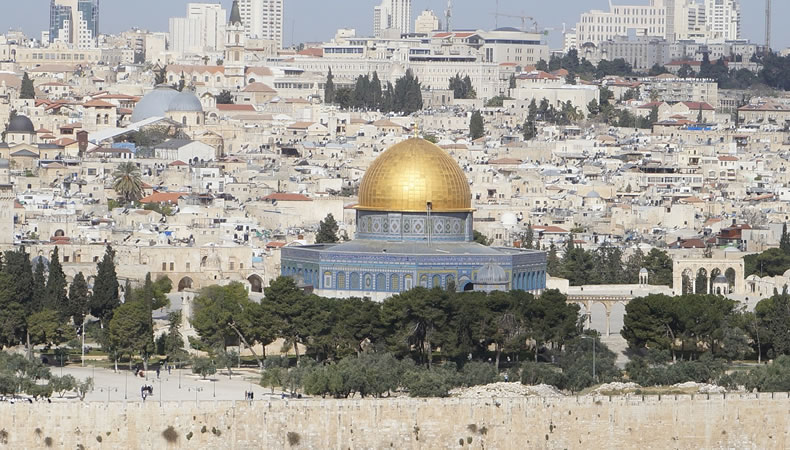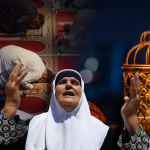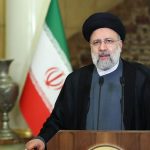Fears of a return to conflict are fueled by skirmishes at Jerusalem’s sacred sites


“We came here for the Passover holiday to show that this city is ours, that it belongs to the country of Israel,” Matan said, his tiniest child’s hand in his. “This is our city, our capital, our country,” says the narrator. The general consensus was that Mr Bennett had sold out and failed to deal properly with recent tensions in Jerusalem as the leader of an ideologically diverse coalition that included an Arab Islamist party.
A large banner declared his opponent, opposition leader Benjamin Netanyahu, to be “king,” while far-right lawmaker Itamar Ben Gvir received loud applause. He said that Mr Bennett was being held back from doing the right thing by his shaky administration, which had just lost its parliamentary majority after one of his own MPs resigned, claiming she could no longer be a part of it. Mr Ben Gvir explained, “It’s not our prime minister’s directives, it’s the coalition’s power.”
Related Posts
“Naftali Bennett was told not to allow Jews onto the Temple Mount,” he said, referring to a disputed holy site in Jerusalem known to Muslims as Haram al-Sharif, which is home to the al-Aqsa Mosque. “They told him to set loose 400 terrorists who were throwing stones.” Because of security concerns, the march was formally forbidden from its original intended itinerary, and Mr Ben Gvir was also barred from using his parliamentary immunity to go to Jerusalem flashpoints.
Mr Ben Gvir was accused of “political provocation” by the prime minister, who said that his proposed activities would imperil police and troops who were “determinedly” battling terrorism. Following an 11-day confrontation with Palestinian terrorists in Gaza last year, Israel formed an unprecedented coalition administration. The risk now is that it will be pushed to collapse by a similar set of circumstances. Efforts to prepare for heightened tensions caused by religious festivals falling on the same day have failed to prevent a new outbreak of violence.
Just after morning prayers on Friday, there were hours of fighting in the al-Aqsa Mosque compound. Anger was sparked by video recordings that spread on social media across the Arab world. Israeli police fired tear gas canisters, stun grenades, and batons against protesters. They said they moved to stop masked protesters from throwing pyrotechnics and stones at the nearby Western Wall, which is the holiest location for Jews to pray. Officers were then spotted inside the mosque, arresting Palestinians who were laying on the ground. Several hundred individuals were held, with the majority of them being freed afterwards. More than 150 people were hurt.
“I believe the Israelis are attempting to create a conflict rather than pursuing peace,” said Mohammed Qasqas, a resident of Battir in the occupied West Bank who has been visiting Jerusalem for Friday prayers throughout the Islamic holy month of Ramadan. “Everyone is completely enraged about it. When you don’t feel protected, praying is the last thing on your mind.” The possibility of modifications to long-standing “status quo” agreements is adding to tensions around al-Aqsa Mosque. Israel rejects this and claims to be acting to protect religious freedom.
Muslims in Palestine fear that the complex may be divided to make room for Jewish worship. During the Passover festival, rumors abounded that Jews would resume the ritual of slaughtering goats at the site, as they had done before the Romans demolished their temple there. After a goat was discovered in one of their residences, Israeli police detained three persons on suspicion of arranging a sacrifice after an extreme Jewish organization posted a Facebook post promising 10,000 shekels ($3,000; £2,400) to anybody who carried out such an act.
The al-Aqsa Mosque compound saw further conflicts on multiple mornings this week, as heavily armed police attempted to empty the courtyard of Muslim worshippers to make room for hundreds of Jewish pilgrims, many of whom arrived barefoot to avoid desecrating the shrine. “This has been going on for quite some time. It isn’t a brand-new concept. It isn’t a shift in the existing quo “In a briefing to media, Jerusalem’s deputy mayor, Fleur Hassan-Nahoum, highlighted the uncertainty and contentiousness regarding what is authorized. “On Jewish holidays, a very, very small group of Jewish people goes up to pray,” she said, despite a reporter pointing out the restriction on Jews openly worshipping there.
While Palestinian terrorist organizations maintain that al-Aqsa remains a “red line,” many regular Gaza Strip residents declare that they do not desire conflict as they prepare for the Eid al-Fitr feast at the end of Ramadan. “Every year, we look forward to this time because we work 15 times harder than normal,” said Mohammed al-Mughrabi, a hairdresser whose store had been destroyed by Israeli air strikes earlier. “Every day, I pray to God that war does not break out because I will be forced to close the salon and lay off five staff if it happens. We do not want to go to war. I urge Egypt and the UN to exert pressure on all parties involved to halt the escalation.”
For the first time in months, terrorists in Gaza launched two rockets into southern Israel and then employed anti-aircraft fire against Israeli warplanes as they attacked Hamas targets in retaliation, raising worries of more conflict. Despite the fact that neither side suffered major injuries, the restless nights brought up bitter memories of earlier battles and worries of a new conflict. The US State Department has urged Israeli and Palestinian leaders to “end the cycle of violence,” and has dispatched top diplomats to meet with officials in the West Bank and Israel, as well as Jordan – the historic custodian of Jerusalem’s Muslim and Christian holy sites – and Egypt, which negotiated last year’s cease-fire.
The Palestinians, on the other hand, are pressing for more international participation. The world seems preoccupied, a senior official from President Mahmoud Abbas’ Fatah group grumbled to me, accusing the US and others of “limp diplomacy.” “We are losing hope,” he continued, “as we watch the international community applying double standards to Palestine against the conflict between Russia and Ukraine.” “In the meanwhile, the situation here is extremely volatile and might blow out at any moment.”











